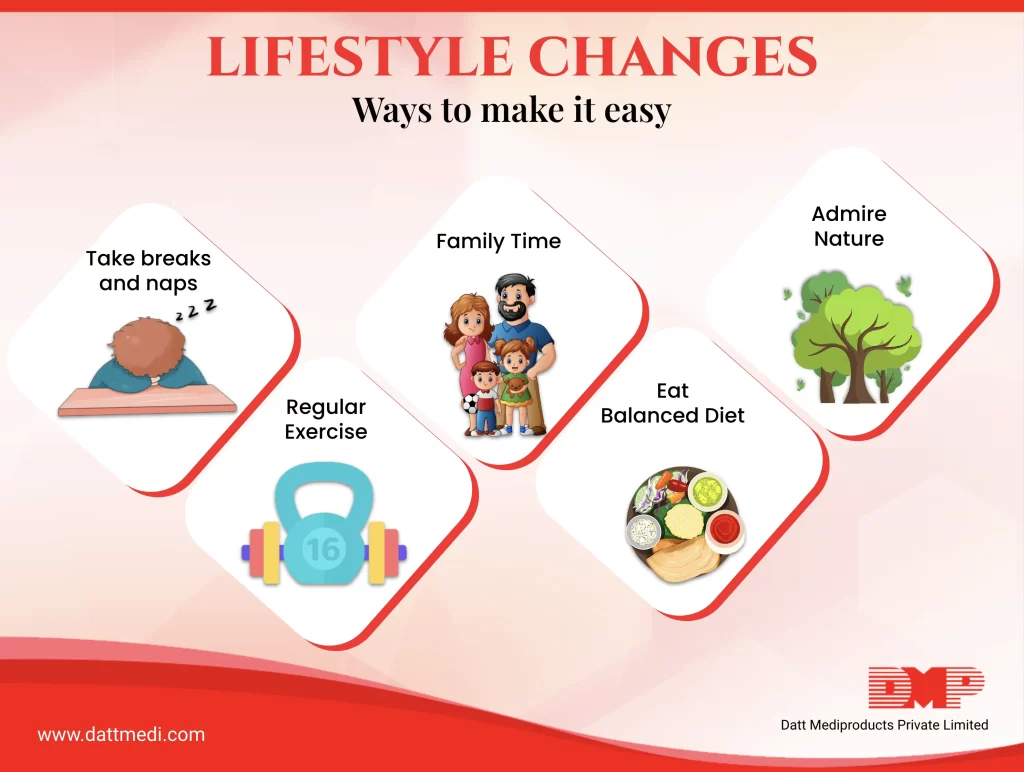
A study conducted in 2016 stated that, “of the 41% of Americans who make New Year resolutions, by the end of the year only 9% feel they are successful in keeping them”.
Think of some realistic, achievable changes in your lifestyle.
There are certain changes that are not in our control but still we can control our lives by bringing small changes in our lifestyle to be happy and healthy.
Think of these –
A. Are you eating right?
Don’t go for fancy diets but eat all the things in a balanced manner.
– Nature has gifted us with coloured legumes and pulses, which are considered to source of protein. So include them in one diet per day from Monday to Sunday.
– Eat as per the season and locally available veggies.
– Eat what our Nanis’ and Dadis’ used to eat, and they stayed active throughout their lives
– Develop a habit of Mindful eating and be aware of what we eat
B. Set up a routine for exercise
Don’t count calories and take it as a burden, rather set a routine of doing mild, moderate to vigorous exercises.
“One of the most undervalued aspects of exercise is that it works as an antidepressant and also reduces your cravings,” says Celebrity nutritionist Rujuta Diwekar.
As per the statistics published by WHO (World Health Organization), “around 1 in 3 women and 1 in 4 men globally do not do enough physical activity to stay healthy” and further it was found that if the global population was more active then upto 5 million deaths per year could be prevented.
C. Pamper yourself
Salons and parlours are no longer gender biased. Both men and women can give themselves a treat.
Some self care practices like massages, pedicures and manicures really boost our mood and in turn our relationship. Try experimenting with your look. Go for a different hairstyle or a wardrobe change.
D. Admire Nature
During the pandemic we stayed at home most of the time, increasing our screen time. This has affected our health more than we realise it.
– It has been reported that children who spend more time indoors are more likely to develop nearsightedness (myopia). So exposure to natural daylight and outdoor activities are critical for normal sight development.
– Spend some time in sun. Our body is blessed to make Vitamin D from direct sunlight. This sunshine vitamin is important for healthy bones teeth and muscles.
E. In between breaks and naps
While working remotely it really becomes important to take some time off screen. Small breaks boosts energy, increases motivation, improves health and quality of work.
Try any of these
– Short midday snooze/naps
– Some deep breathing
– Chit chat over phone call
– Take a meal break
F. Family time
Now days everybody is at home, with kids having on-line classes and parents having their work from home (WFH).
So, there should be a balance between work and family.
-Plan a vacation
– Play with your kids
– Spend some time with parents
– Book a fancy dinner
Healthy relationships could increase lifespan by up to 50%.
G. Yoga and Meditation
There is no better way to start your day with yoga. For balanced and healthy lifestyle, practice ancient methods of yoga and meditation to-
-Relax mind and body
-Lower blood pressure
-Keep work related stress and anxiety at bay
“Make fitness a habit.
Motivation is what gets you started.
Habit is what keeps you going.”
– Jim Ryin
So, for physical and mental wellbeing eat light, deep breathe, understand thyself and maintain interest in life. And above all always keep yourself motivated to see the change in yourself.
We @dattmediproducts understand that the bond between lifestyle and health is very crucial. So, rejuvenate your mind and body by adopting these lifestyle changes and see the magic.




